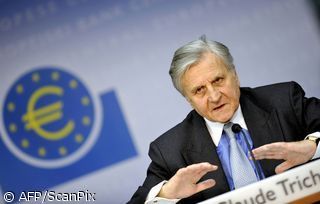SAS group is adopting a simplified corporate structure.
Published:
25 June 2001 y., Monday
As per July 6, 2001 the whole of SAS is grouped under one Swedish holding named SAS AB. One seventh (14.3%) of this holding is owned by both the states of Denmark and Norway, Sweden owns one and a half sevenths (21.4%). The remaining 50% are in private hands. This ownership split is the same as within the former structure where SAS Danmark A/S, SAS Norge ASA and SAS Sverige AB - each of them being held 50-50 by the respective state and private investors - owned two sevenths and three sevenths respectively of the SAS Consortium. So why this change if everything remains the same?
«We are now more transparent and thus more interesting for investors,» says Vagn Sцrensen, executive vice president airline commercial of SAS Group. «The old structure with three different SAS shares were too complicated, especially so for international investors. And we needed four board meetings - one for each national holding and one for the consortium - to approve things like our quarterly results for example.»
«We want to make our share the 3rd most traded one among European airlines' shares - after Lufthansa and British Airways but ahead of KLM, Swissair, Air France and Alitalia,» Sцrensen continues. At present trading of SAS shares is between those of Air France and Alitalia. Since 1st June 2001 SAS Cargo is operating as an independent company.
Šaltinis:
transportjournal.ch
Copying, publishing, announcing any information from the News.lt portal without written permission of News.lt editorial office is prohibited.
The most popular articles
 The European Commission has authorised under EU state aid rules a €550 million capital injection and a €400 million guarantee in favour of the Austrian bank BAWAG. P.S.K. The Commission found the measures to be in line with EU state aid rules.
more »
The European Commission has authorised under EU state aid rules a €550 million capital injection and a €400 million guarantee in favour of the Austrian bank BAWAG. P.S.K. The Commission found the measures to be in line with EU state aid rules.
more »
 EUROSTAT has reported that the sharpest annual decrease in hourly labour costs of -10.9% was observed in Lithuania in the 3rd quarter of 2009.
more »
EUROSTAT has reported that the sharpest annual decrease in hourly labour costs of -10.9% was observed in Lithuania in the 3rd quarter of 2009.
more »
 Statistics Lithuania informs that, according to the Labour Force Survey data, the number of the unemployed in III quarter 2009 made 228.1 thousand.
more »
Statistics Lithuania informs that, according to the Labour Force Survey data, the number of the unemployed in III quarter 2009 made 228.1 thousand.
more »
 What has come to be termed as the "Great Recession" seems to have come to an end in the third quarter of 2009.
more »
What has come to be termed as the "Great Recession" seems to have come to an end in the third quarter of 2009.
more »
 The European Commission has authorised, under EU State aid rules, a measure adopted by Lithuania to limit the adverse impact of the current financial crisis on exporting firms.
more »
The European Commission has authorised, under EU State aid rules, a measure adopted by Lithuania to limit the adverse impact of the current financial crisis on exporting firms.
more »
 The schedule of Vilnius International Airport (VIA) is supplemented with 3 more new directions; the airline company airBaltic starts regular flights to Paris today, to Munich tomorrow, and to Berlin on Monday.
more »
The schedule of Vilnius International Airport (VIA) is supplemented with 3 more new directions; the airline company airBaltic starts regular flights to Paris today, to Munich tomorrow, and to Berlin on Monday.
more »
 The Governing Council of the European Central Bank (ECB) has decided to start the main construction works for its new premises in spring 2010.
more »
The Governing Council of the European Central Bank (ECB) has decided to start the main construction works for its new premises in spring 2010.
more »
 AB Bank SNORAS was granted the award from NASDAQ OMX Baltic Stock Exchange for the jubilee 15-year listing of the bank’s shares on NASDAQ OMX Vilnius Stock Exchange.
more »
AB Bank SNORAS was granted the award from NASDAQ OMX Baltic Stock Exchange for the jubilee 15-year listing of the bank’s shares on NASDAQ OMX Vilnius Stock Exchange.
more »
 Parex banka has established a subsidiary, SIA NIF, which will professionally manage assets that are not related to the Bank’s core business.
more »
Parex banka has established a subsidiary, SIA NIF, which will professionally manage assets that are not related to the Bank’s core business.
more »
 Mariann Fischer Boel, European Commissioner for Agriculture and Rural Development, today put forward a plan to ensure that Greece will put in place the systems necessary to allow EU aid payments to be made to farmers.
more »
Mariann Fischer Boel, European Commissioner for Agriculture and Rural Development, today put forward a plan to ensure that Greece will put in place the systems necessary to allow EU aid payments to be made to farmers.
more »